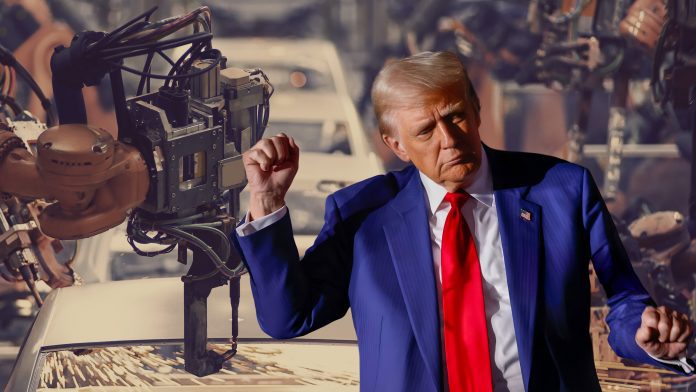As the auto industry braces for the potential impact of President-elect Donald Trump’s proposed tariffs, global auto suppliers are reevaluating their production strategies.
The impending tariffs–10% on global imports, 60% on Chinese goods, and 25% on imports from Canada–have raised concerns about the viability of maintaining production in lower-cost markets, such as China and Malaysia. As a result, suppliers are starting to explore how they can mitigate these risks.
One of the largest suppliers, Bosch, is looking into relocating some of its production closer to the U.S. to avoid the impact of the tariffs. They’re considering moving operations to Mexico or Brazil, where they already have a presence.
Other suppliers, such as Continental and Panasonic, are also reevaluating their operations. Panasonic is taking steps to eliminate Chinese components from its U.S.-made batteries to avoid the risks of relying on foreign parts. This change is part of the company’s broader strategy to safeguard its supply chain and maintain its market position in the face of potential tariff hikes.
The idea of reshaping supply chains to respond to tariffs is not a new one. During Trump’s first term, similar policies prompted many auto companies to shift production to the U.S. in order to avoid the financial strain of import taxes. A well-known example of this occurred when Toyota moved production of its Corolla sedan from Mexico to Alabama, following Trump’s public pressure on the company to boost U.S. manufacturing.
The COVID-19 pandemic added further urgency to these strategies, as global supply chain disruptions underscored the need for more localized production. Many suppliers have started bringing manufacturing closer to the U.S. to avoid delays and shortages.
The U.S. Inflation Reduction Act (IRA) also spurred more investment in U.S.-based production, especially in the electric vehicle (EV) sector. However, with Trump pledging to dismantle parts of the IRA, the future of these incentives remains uncertain.



